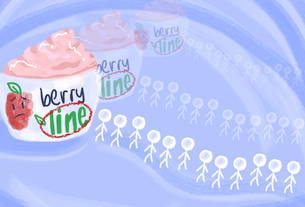The students demanded that the system change, leading to the creation of the ordered choice system, in which students ranked their top housing choices and received a lottery number that determined their assignment.
This system worked well and the Houses continued to be diverse and “essentially a microcosm of the College,” Dowling says.
It was not until the early 1980s that certain Houses began attracting specific groups of students, so that by the mid-1980s the College began to see certain groups of people in different Houses.
“That was disturbing,” says Dowling, who became the Leverett House Master in 1981.
“All the African-American students were in one or two Houses, all the gays and lesbians were in one House, and all those that either came from prep schools or thought they should have been coming from prep schools were in another House,” he says. “Then all the athletes were heading to yet another House, and the science concentrators to yet another House.”
A study done in 1982 found that African Americans made up 21 percent of Currier House compared to less than three percent of Kirkland and Eliot Houses. The study also showed that athletes made up just under half of Kirkland House, while they made up only five percent of Adams House.
“When I returned to Harvard as a post-doc in 1971, the old system had been swept away, and replaced by the pre-randomization system” Georgi says. “I think that this was a disaster for Eliot House. It had become a preppy ghetto, and I could not find the diversity of students that I had so enjoyed as an undergraduate a few years earlier.”
HOUSE MASTERS DEBATE
In December 1987, Dingman first mentioned the issue of House segregation in a House committee meeting, and in March of 1988 the House masters first debated the issue.
The masters were divided. Those that were against the proposed change argued that pure random assignment would “take away the real energy,” Dingman remembers. They were worried that if, for example, a House that had been known for putting on theatrical productions no longer had this distinction, then no House would be able to mount anything of the sort.
“But we knew this wasn’t true,” Dingman says, “because a House at the time was winning the Strauss Cup—an award for intramural success—and this House had been randomly assigned… This same House was also putting on its own in-House musical.”
Other House masters, like Dowling, pushed for change.
“We think every House should be a microcosm of the College, and that the students can learn as much from one another as they can from us faculty. If it’s all the same in every House, it would really be a mistake...we would be negating what Lowell set up as the ideal House system.”
The students were also divided. Some thought that this “social engineering” would ruin Harvard, while others thought it would provide for a richer undergraduate experience.
According to Dowling, an Undergraduate Council survey showing mixed feelings on the issue helped encourage the House masters to move forward.


